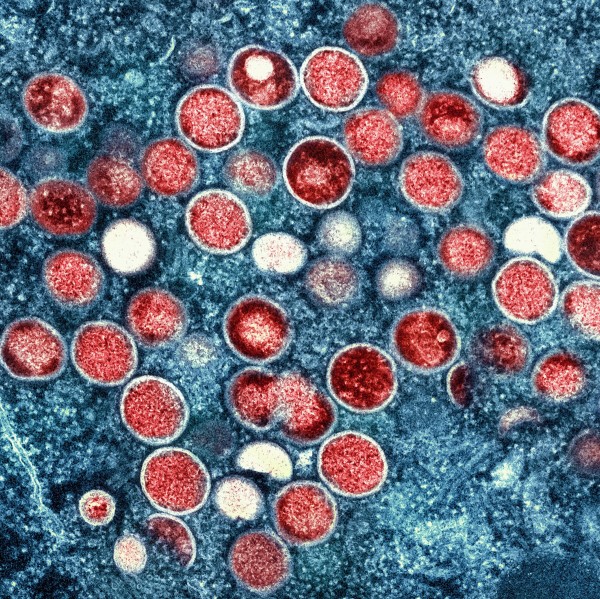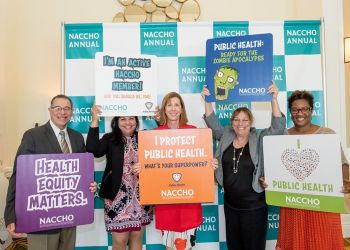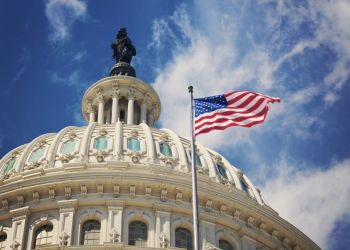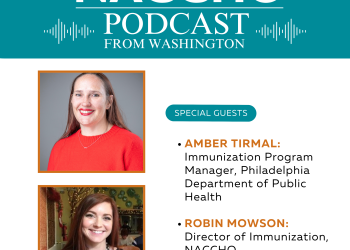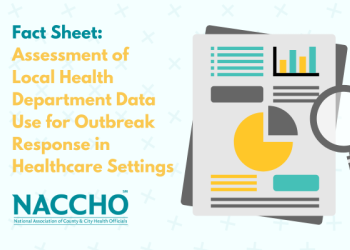Mpox (formerly known as monkeypox) emerged in the United States in May of 2022 after spreading across the globe with the first cluster of cases found in the United Kingdom. After a sharp rise in cases across the country, the United States declared a public health emergency in August of 2022. Since then, cases have significantly declined, but local health departments (LHDs) have still been attempting to recover since the start of the outbreak.
The National Association of County and City Health Officials (NACCHO) conducted a brief survey to gather information from LHDs on experiences, impact, and response efforts related to the Mpox outbreak. The survey was led by the organization’s Research and Evaluation and HIV, STI, and Viral Hepatitis teams and distributed online via Qualtrics Survey Software™ to a convenience sample of LHDs.
Survey responses were collected between October and late-November of 2022, and a total of 106 responses were included in the analysis of the sample. Responses from the survey varied but demonstrated that LHDs are still greatly impacted by the Mpox outbreak. In fact, 75% of LHDs reported that they had cases of Mpox, and confirmed cases reported ranged from 1 case to 2,164 cases. That said, almost all of the LHDs from the sample reported providing Mpox related services, including Mpox-specific health education communications (86%) and Mpox vaccination (82%). LHDs also reported providing Mpox testing (46%), referrals for Mpox (42%), and other services (19%) which included case investigations, contact tracing, partnerships/coordination of services, providing patient support and resources, as well as STI/Mpox testing.
While LHDs reported that they were able to provide a number of services to patients during the Mpox outbreak, local jurisdictions also indicated that they faced many challenges in response to the outbreak. Approximately 1 in 3 LHDs from the sample reported challenges related to Mpox-specific community education/messaging, Mpox specific LHD funding, and Mpox vaccination. Only 27% of LHDs reported that they experienced no challenges and 13% reported other challenges, including low community demand or lack of trust with at-risk groups, staff/workforce shortages, stigma within the community, and logistics around eligibility, prescriptions, and clearing patients with Mpox.
Although cases have significantly declined since the start of the Mpox outbreak, the results from NACCHO’s Mpox survey indicate that additional sustainable support and resources must be provided to LHDs to help them respond effectively to infectious disease outbreaks. Many LHDs are at the forefront of other health emergencies, including the COVID-19 pandemic, and need some form of relief. Although the responses from the survey are helpful to assess the current state of LHDs since the Mpox outbreak, it is important to note that findings from the survey are not nationally representative and should be interpreted with caution.
